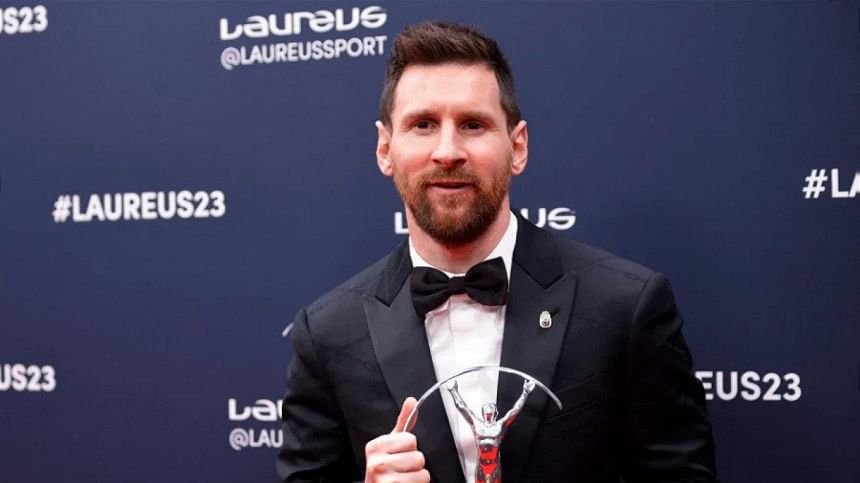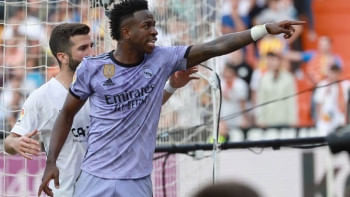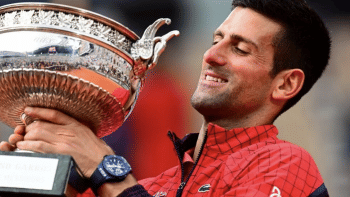Messi, the million-dollar man

Lionel Messi has won everything there is to win as a footballer and has changed how we perceive the beautiful game. Now, with his move to Inter Miami CF – the US football club based in Florida – he is about to shift the financial dynamic of the football world.
On June 8, when Messi announced his decision of moving to the state of Florida to play for Inter Miami, Paris Saint-Germain (PSG) lost one million followers on Instagram overnight. On the other hand, Inter Miami's exposure skyrocketed to eight million followers, the highest among Major League Soccer (MLS) teams. That is the power of Lionel Messi, the greatest footballer in the world.
But what effect does this have on the business side of football? Well, in short, this deal changes the way in which footballers will do business.
Lionel Messi and his contemporary Cristiano Ronaldo are footballers first, yes, but they are also prized assets in the robust business side of football. Messi's arrival in Paris helped PSG generate 610 million pounds in revenue in 2021. And one can see why clubs have been so heavily interested in signing the million-dollar man. By winning the World Cup just at the end of 2022, Messi established himself in the same category as his idol, Diego Maradona, and the great Pele – thus increasing his valuation even further.
As Messi's tenure at PSG began to draw to a close, Saudi Arabia, Spain, and the US emerged as the favourites to sign him. For most of the year, Saudi Arabia's Al-Hilal seemed like the next expected stop for the player. A reported $500 million offer was laid on the table and the fact that the league already had Cristiano Ronaldo made it seem like an obvious choice. On the other hand, Messi's childhood club (the one that had catapulted him into stardom) FC Barcelona also emerged as a probable destination. However, Barcelona's financial constraints, which was a key factor behind his departure in 2021, made it difficult for them to bring back the Argentinian. In the end, Inter Miami came to the table with a game-changing offer – one that we now know was too good to refuse.
But there are many factors to consider in the offer laid out by Inter Miami. Major League Soccer (MLS), in the US, has a strict salary cap and roster rules, which means clubs cannot offer any sum as they wish. But they decided to make an exception for Messi. The reported value of the deal is between $125 million to $150 million for two and a half years, with an option to further add another year after 2026. This is significantly less than Al-Hilal's $500-million-a-year offer. However, the add-ons and the fine print of the US deal are what makes it so lucrative.
Firstly, Inter Miami, which is based in the state of Florida, has no income tax. The tax structure attracts many renowned athletes and celebrities who can have the peace of mind of knowing their earnings will not be slashed by half. It also has low corporate income taxes, which makes it an attractive business destination. Secondly, MLS has offered Messi the option of having part-ownership of Inter Miami after his retirement. Thirdly, and most importantly, both Apple (broadcaster for the MLS) and Adidas (clothing sponsor for Messi and Inter Miami) have offered to share their profits from merchandise and subscriptions with Messi. This is unprecedented in the football industry.
Messi brings in fans and the fans bring in money. Apple TV+ recently signed a 10-year, $2.5-billion contract with MLS and announced a four-part documentary showcasing Messi's journey in the World Cups. Adidas, Messi's long-standing sponsor, also offered him a percentage of profits earned from merchandise sales, a format initially introduced by Michael Jordan when he signed for Nike in the 1980s (for every Air Jordan sold, Michael Jordan made a profit. And even after retiring from basketball, he reaped the benefits of the deal, which generated $5.2 billion in revenue in the last year). Adidas is probably looking at this deal as a win, and rightly so. Messi signed a lifetime contract with the clothing giant back in 2017, ensuring that even after his retirement, his legacy will continue, and so will their revenue.
In the last few decades, the commercial value of football has become highly attractive to major companies. Amazon and Apple, giants typically associated with the tech industry, have entered the sports market vying to secure broadcasting deals for the European and US leagues. However, it is the clubs that profit from these deals, not individual players. Messi, on the other hand, is set to become the first player to capitalise on such agreements. What sets individual players apart is that their image rights are separate from their employment contracts. These rights are negotiated separately between the player and the club, and given Messi's immense value, one can only imagine how expensive it is to acquire his image rights.
When it comes to football, Messi has expressed a desire to slow down his career at this stage. Considering that he has already achieved everything on the field, this is understandable. After playing football for almost two decades, he is now focusing on the long game – focusing on the business aspect of the sport. However, a pertinent question will hover over the world of football: how will other players and their agents approach the financial aspect of the game, in light of Messi's move to MLS? Only time will tell.
But one can be sure that, wherever he goes and whatever he does, Lionel Messi will always change the game.
Raiyan Binte Rafiq is pursuing an LLM, while freelancing for Football.Co and INDIVISA to cover UEFA Women's Champions League and Women's Super League. She also oversees recruitment in Next Level Sports Management, based in Bangladesh.

 For all latest news, follow The Daily Star's Google News channel.
For all latest news, follow The Daily Star's Google News channel. 













Comments